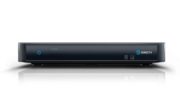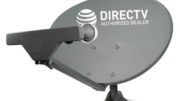Football season is DIRECTV’s best season. They’ve traditionally pulled in big profits and everyone’s happy when there’s money flowing in, especially when it comes from the excitement that is NFL football. Bringing you that football action takes a lot of resources, though; a dedicated channel for each game plus all the interactive channels. In the past that’s put a lot of strain on DIRECTV’s ability to deliver all the entertainment customers want, especially when combined with NBA and NFL games taking place at the same time. Come January, though, there’s a lot of extra capacity. What happens to it?
The neat thing about DIRECTV’s satellite delivery system is that it’s incredibly flexible. Sure, they can’t deliver an unlimited number of channels but it’s pretty impressive what they can do. It starts with variable bit rate technology. You’ve probably heard of this, because it’s been in use for about a decade. DIRECTV can tweak the signal so it takes up more or less bandwidth. Of course, the less bandwidth that’s used, the worse the picture gets. Unlike Netflix or other streaming sources, they can’t roll out new encoding schemes on the fly, but even when you consider that, they have an impressive ability to make channels take more or less bandwidth. If they need more channels, they can squeeze a little bit out of many other channels to make up the capacity they need.
Another step that’s taken is controlling the way the transponders are stacked. DIRECTV satellites have very few actual transponders when you consider the over 1,000 national and almost 10,000 local channels in use. The latest generation of hardware can stack more channels on each transponder, increasing the total number of channels without adding more satellites. Of course, right now DIRECTV is fairly flush with satellite capacity since they launched two new satellites for 4K channels that don’t exist yet.
If need be, DIRECTV can even play little tricks with channel assignments. If there’s an NFL game and and NBA game that are on the same day but happen hours apart, they can actually share one channel in the DIRECTV system even though your receiver thinks they’re different channels. They can take a pay-per-view channel off the air for just a few hours to make room for a game if they need. This kind of reassignment happens all the time and your receiver just handles it automatically.
Of course the final step would be removing unpopular channels for a day or two. This has been done in the past but it’s been years since DIRECTV needed to do it. It’s mostly really low-rated channels with limited appeal. This method can cost DIRECTV money to do if there’s a contract in place that requires 24/7 coverage, so it’s pretty rare.
So, you’ve learned how DIRECTV makes it possible to squeeze in those Sunday Ticket channels in the first place, so what happens when football season is over? Basically those channels just disappear and the capacity is used where it’s needed. For example, more DIRECTV Cinema channels could be added or the channels could be leased out to private video feeds. This also is something that happens all the time without you being aware of it.





